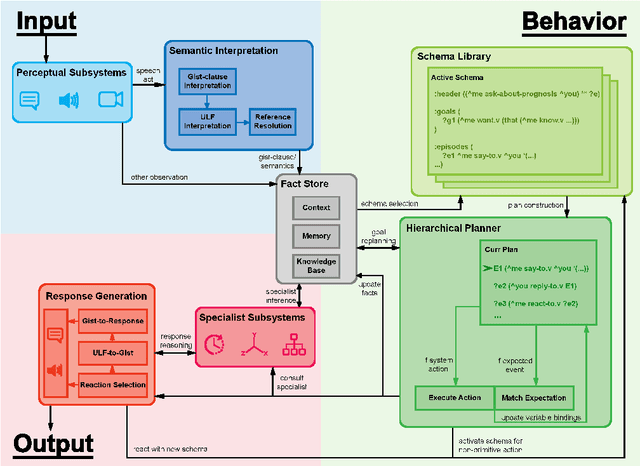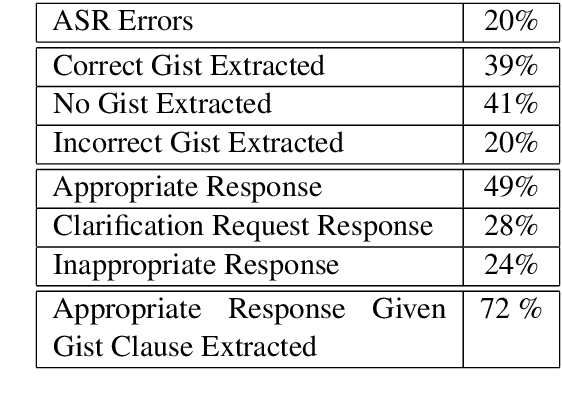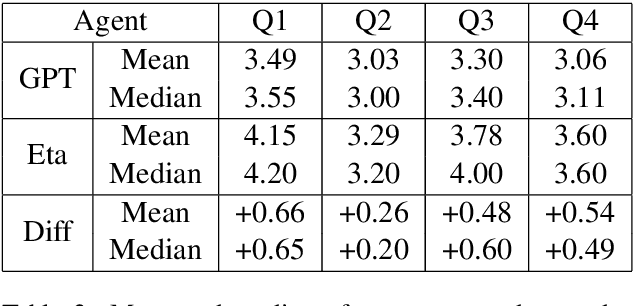A Flexible Schema-Guided Dialogue Management Framework: From Friendly Peer to Virtual Standardized Cancer Patient
Paper and Code
Jul 15, 2022



A schema-guided approach to dialogue management has been shown in recent work to be effective in creating robust customizable virtual agents capable of acting as friendly peers or task assistants. However, successful applications of these methods in open-ended, mixed-initiative domains remain elusive -- particularly within medical domains such as virtual standardized patients, where such complex interactions are commonplace -- and require more extensive and flexible dialogue management capabilities than previous systems provide. In this paper, we describe a general-purpose schema-guided dialogue management framework used to develop SOPHIE, a virtual standardized cancer patient that allows a doctor to conveniently practice for interactions with patients. We conduct a crowdsourced evaluation of conversations between medical students and SOPHIE. Our agent is judged to produce responses that are natural, emotionally appropriate, and consistent with her role as a cancer patient. Furthermore, it significantly outperforms an end-to-end neural model fine-tuned on a human standardized patient corpus, attesting to the advantages of a schema-guided approach.
 Add to Chrome
Add to Chrome Add to Firefox
Add to Firefox Add to Edge
Add to Edge